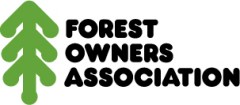PESTS AND DISEASES OF FORESTRY IN NEW ZEALAND
Cotesia urabae released in Nelson
Scion is the leading provider of forest-related knowledge in New Zealand
Formerly known as the Forest Research Institute, Scion has been a leader in research relating to forest health for over 50 years. The Rotorua-based Crown Research Institute continues to provide science that will protect all forests from damage caused by insect pests, pathogens and weeds. The information presented below arises from these research activities.
From Forest Health News 240, September 2013.
The gum leaf skeletoniser Uraba lugens (GLS) has been in the South Island in Nelson since 2011. Although widespread the population density remains low. However with a widespread use of eucalypts as amenity trees in the Nelson region and a growing interest in eucalypts in the neighbouring Marlborough area through the New Zealand Dryland Forests Initiative, introducing the parasitoid Cotesia urabae to the South Island population of GLS would be a useful outcome for the forest industry. Gonzalo Avila from Auckland University assisted us with supplying C. urabae females that had originated from those imported from Hobart, Tasmania last Christmas. These were used to attack numerous small GLS larvae in the laboratory in Rotorua. We estimate that between 800 and 1000 parasitized larvae were released into amenity eucalyptus trees in three spots in Tahunanui, Nelson, on 9 September this year. Hopefully they emerge, mate, and locate and parasitize nearby GLS caterpillars. If the weather is kind to them we may be lucky if they manage to establish from this single release. A previous similar release undertaken by Belinda Gresham in Port Whangarei was later shown to be successful, with a resident population of C. urabae now established in that site.
Toni Withers, Belinda Gresham, Michelle Watson
This information is intended for general interest only. It is not intended to be a substitute for specific specialist advice on any matter and should not be relied on for that purpose. Scion will not be liable for any direct, indirect, incidental, special, consequential or exemplary damages, loss of profits, or any other intangible losses that result from using the information provided on this site.
(Scion is the trading name of the New Zealand Forest Research Institute Limited.)



